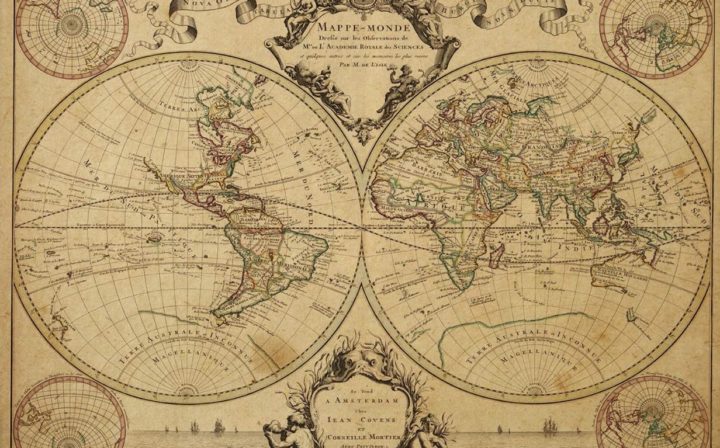Твоя лучшая возможность что-то изменить: наше руководство о том, как построить карьеру, чтобы всерьёз улучшить мир
Table of Contents
- 1 1. Введение
- 2 2. Foundations: what does it mean to make a difference? 文
- 3 3. Global priorities: what’s the world’s most pressing problem? 文
- 4 4. Contribution: which career paths give you the best opportunities to tackle global problems? 文
- 5 5. Personal fit: what are you good at? 文
- 6 6. Strategy: how to find your best career 文
- 6.1 Career capital: how best to invest in yourself 文
- 6.2 Career exploration: when should you settle? 文
- 6.3 Be more ambitious: a rational case for dreaming big (if you want to do good) 文
- 6.4 Doing good together: how to coordinate effectively, and avoid single-player thinking 文
- 6.5 How to balance impact and doing what you love 文
- 6.6 3 key career stages 文
- 6.7 Other articles: 文
- 7 7. Conclusion: how much do careers differ in impact? 文
- 8 What’s next Make your new career plan 文
Твоя карьера — это лучшая возможность изменить мир. Но что именно нужно для этого сделать? Мы ищем ответ на этот вопрос уже десять лет.
Перед тобой открыто множество дорог. Мы обнаружили, что некоторые из них позволяют принести гораздо больше пользы, чем другие, причём зачастую эти дороги довольно недооценены. Это означает, что нам нужно переосмыслить, какие профессиональные пути приносят пользу обществу. И после этого, возможно, ты найдёшь путь, который и изменит мир к лучшему, и понравится тебе не меньше, чем тот, на котором ты стоишь сейчас.
В этом цикле статей ты узнаешь о том, какие идеи сильнее всего изменили наше представление о том, как построить карьеру, которая принесёт миру много пользы. Мы начнём с определения «пользы», а затем перейдём к четырём факторам, которые сильнее всего определяют, насколько много ты сделаешь. Это поможет тебе сравнивать имеющиеся у тебя варианты с точки зрения, насколько они могут что-то изменить. В конце мы познакомим тебя с наиболее важными штуками для карьерной стратегии.
В этом цикле двадцать основных статей. Их можно прочитать за выходные. После прочтения у тебя уже будет достаточно информации, чтобы начать придумывать новый план своей карьеры. Также здесь есть необязательные дополнительные статьи, подкаст-интервью и короткое резюме всего цикла.
Ты можешь подумать, что это означает очень много работы. Однако если у тебя есть способ увеличить пользу от своей карьеры всего лишь на один процент, то, чтобы его освоить, можно потратить до 800 часов. А мы считаем, что пользы будет гораздо больше, а времени ты потратишь гораздо меньше. Поэтому начнём.
1. Введение
Почему твоя карьера — это наилучшая возможность изменить мир, и как лучше всего её использовать (также это вступление к остальным статьям цикла).
Prefer to listen rather than read? Hear our founder and president, Benjamin Todd, discuss some of the most important ideas in the series in episode #71 of The 80,000 Hours Podcast. 文
Careers decisions are highly individual, so there are many questions we can’t easily help with. We aim to focus on career questions that are more widely relevant. To answer the questions we tackle, we draw on: 文
Expert interviews — you can listen to over 60 examples of these interviews on our podcast, and also see the results of some anonymous interviews. Our first pass on many questions involves synthesising what several experts say on the question.
Academic literature — we aim to draw on academic literature where it’s available, such as the literature on existential threats, the distribution of productivity in different fields, and how to make good decisions. We’re also affiliated with some academic partners.
Advising our readers — we’ve given one-on-one advice to over 2,000 people since 2011, many of whom we’re still in touch with. This gives us a sense of what mistakes are common, as well as some indication of how decisions play out over time. 文
It’s not usually possible to confidently answer the kinds of questions we tackle. However, we do our best to synthesise the sources of evidence we draw on, using our research principles. We also aim to highlight the key aspects of our reasoning so that readers can make their own assessments. 文
The topics we tackle are complex, and in the past we’ve noticed people interpreting our advice in ways we didn’t intend. Here are some points to bear in mind before diving into our advice. 文
We want our writing to inform people’s views, but only in proportion to the likelihood that we are correct. Given that, it’s important to keep in mind that we’ve been wrong before and we’ll be wrong again. We’ve spent a lot of time thinking about these issues, but we still have a lot to learn. Our positions often change every couple of years, and due to the nature of the questions we take on we’re rarely more than about 70% confident in our answers. You should try to strike a balance between what we think and your previous position, depending on the strength of the arguments and how much you already knew about the topic. 文
It’s extremely difficult to give universally applicable career advice. The most important issue here is that which option is best for you depends a huge amount on your skills and circumstances, and the specific details of the opportunity. So, while we might highlight path A more than path B, the best opportunities in path B will often be better than the typical opportunities in path A. Moreover, your personal circumstances could easily mean the best option for you is in path B. So, treat the specific options we mention as an aid for compiling your personal list of career ideas. Also keep in mind that many issues in career choice are a matter of balancing opposing considerations — for instance, if we say people put too much emphasis on X, there will usually be some readers who put too little emphasis on X, and need to hear the opposite advice. 文
Our advice is aimed at a particular audience: namely, people with college degrees who want to make having a positive impact (from an impartial perspective) the main focus of their careers, especially in the problem areas we most recommend; who live in rich, (for the most part) English-speaking countries; and who want to take an analytical approach to their career. At any given moment many people need to focus on taking care of their own lives, and we don’t think anyone should feel guilty if that’s the case. Certain parts of our advice, such as our list of priority paths, are especially aimed at people who are unusually high achieving. In general, the more similar you are to our core audience, the more useful the advice will be, although much of what we write is useful to anyone who wants to make a difference. 文
Treat increasing your impact as just one long-term goal. Working on the world’s most pressing problems is among the most worthwhile challenges we can imagine, though it can also be overwhelming. Bear in mind, 80,000 Hours is about how to maximise your impact, and this can make it sound like we don’t care about other goals. However, the team sees increasing our impact as just one important goal among several in our lives, which means we often do things that aren’t optimal from the perspective of doing good. Indeed, even if your only goal was to have an impact, to do that it’s vital to do something you can stick with for years — and this means taking care of your personal priorities as well. 文
Aim for steady progress rather than perfection. It can take a long time to work out how to factor the ideas we cover into your own plans and find the right opportunity. Along the way, because there’s always more that could be done, it can be easy to become overly perfectionist, get caught up with comparisons, and never be satisfied. When using our advice, the aim is not to find the (unknowable and unattainable) perfect option, or have more impact than other people. Rather, focus on making steady progress towards the best career that’s practical for you given your constraints. 文
Older articles on the site are less likely to reflect our current views, so check their publication date. We also aim to keep this key ideas page up to date as the canonical source of advice, and to flag older articles when our views have changed, though we have hundreds of pages of content, so we don’t catch everything. 文
2. Foundations: what does it mean to make a difference? 文
We think ‘making a difference’ is best understood as being about the number of people whose lives you improve and how much you improve them by — regardless of who they are or when they’re living. In this article we try to summarise 2,400 years of philosophical thought to explain why. 文
The case for why the best thing to do with your career could be making sure the future is as good as possible, and what that might imply. 文
Why some ways of doing good are much more effective than others, and how we underestimate the size of the effect. 文
Other articles: 文
Expected value: how can we know what makes a difference when uncertain?
Why good judgement is so crucial to doing good, and how to improve
Is it ever OK to take a harmful career for the greater good?
How to estimate very uncertain things. An introduction to practical bayesianism.
Moral uncertainty: how to act when uncertain you’re about what’s good
Counterfactuals and how they change our view of what does good 文
3. Global priorities: what’s the world’s most pressing problem? 文
People often assume it’s impossible to compare the impact of working on different global issues. But some important issues get a lot less attention than others, so by focusing on these you can greatly increase your impact. 文
The chance of a catastrophe from nuclear war, runaway climate change, or emerging technology is small each year, but all that adds up over lifetimes. Read about why we think reducing these risks should probably be our biggest priority. 文
Why the development of advanced AI systems that lead to explosive growth and scientific advancement may lead us more quickly than most people imagine to a deeply unfamiliar future — making the 21st century the most important in history. 文
See the issues we think are most neglected relative to their importance, which could offer especially good opportunities to make a difference. 文
4. Contribution: which career paths give you the best opportunities to tackle global problems? 文
People often group careers into those that ‘help’ and those that don’t. But there are many more ways to contribute than the traditional ‘helping’ careers. And even within the careers that help, there are huge differences in how much. This article explores one way to have a bigger contribution — getting more leverage. 文
Many solutions to global problems don’t have much impact, but the best are enormously effective. How taking a ‘hits-based’ approach to finding the best solutions can enable you to make a far bigger contribution. 文
A list of ideas for high-leverage paths in which you can mobilise a lot of resources toward the best solutions to some of the world’s most pressing problems. 文
5. Personal fit: what are you good at? 文
The productivity of different people within a field varies greatly, so personal fit is one of the most important factors in determining the expected impact of your career. 文
6. Strategy: how to find your best career 文
Most people reach their peak productivity age 40–60, which suggests you can greatly increase your impact by investing in yourself. 文
It’s easy to miss a great option by narrowing down too early. And if careers differ so much in impact, it’s probably even more important to explore than people usually think. 文
If you want to do good, there are greater reasons to be ambitious and take risks. We cover four arguments about why to set up your life so you can afford to fail, and then aim as high as possible. 文
Through trade, coordination, and economies of scale, individuals can achieve greater impact by working together — but to take full advantage of this, you need to change how you approach your career. 文
Why doing good and being happier are more aligned than people think, and some thoughts on how to navigate the tradeoffs that arise. 文
How to plan a career over time based on all the above points on career strategy. 文
Other articles: 文
7. Conclusion: how much do careers differ in impact? 文
And why this means you might be able to find a career that’s both much higher impact and more satisfying than your default plan. 文
What’s next Make your new career plan 文
Now that you’ve read the series, here are two ways we can help you update your career plan, and put these ideas into action: 文
1. Speak to our team one-on-one 文
If you’re interested in working on one of our top problem areas, our advising team might be able to speak with you one-on-one. They can help you consider your options, make connections with others working on these issues, and possibly even help you find jobs or funding opportunities. (It’s free.) 文
Speak to our team2. Use our planning course to write your plan 文
If you want to think more about your plan first, sign up to our eight-week career planning course. It takes everything we’ve learned about career planning and turns it into a series of tips, prompts, and resources to help you clarify your longer-term goals and turn them into actionable next steps. It’s designed to be useful no matter which problems and career paths you want to focus on. 文
Sign up to receive the course through a weekly email, or you can see everything online. 文
!newsletter-subscribe 文




















